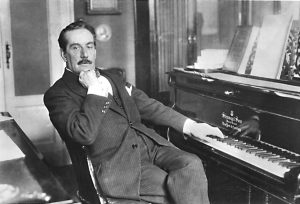
Opera was created in Italy and then spread over Europe by word of mouth, as a marvel that amused and entertained people who didn´t even speak Italian sometimes.
The Beginnings
Opera was born Italy in the 1600s and it is very interesting to see how it actually fits the mood and the way that Italians relate to each other. We could never deny, not for a minute, that drama comes from the hot, Latin blood of Italians and its unlikely mix with the high-end European musical education they received. In fact, some of the greatest composers of all time were not Italian but would write in that language, like Mozart. The first record of contact between the Italian opera and the rest of Europe can be traced to 1628 in Warsaw (now Poland) with a performance of Galatea, whose author is sadly unknown. The Prince Wladyslaw Vasa was one of the main contributors to the spreading of opera to this territory by “importing” Italian writers and composers and also overseeing the production of at least ten operas during the 1630s and 40s.
In the 1660s, Cavalli was invited to France to compose an opera for King Louis XIV for his wedding and in 1668, Cesti was asked to write an opera for the Hasburg Court in Vienna with astonishing success. From that moment on, Italy was always regarded as “the ones who lead” in terms of opera and with joust reason, because the greatest exponents have always come from that land (Verdi, Puccini, Rossini).
The Trend Setters
It was Verdi the one who lead the Romantic period, my favorite, and was his heir, Puccini who took the romanticism and turned into verisimo (realism) to disembark into the next century, but most importantly, they always increased the depth in the dramatic story. All the rest of Europe follows the lead of Italians but can’t even come close to the emotional depth this incredible culture carries with them as both: a burden and a blessing. I believe that is mostly because they have this amazing sensitivity that they can actually put words and music to that depth and be so extreme in the ups and the downs. In fact, if you have ever been to Italy, you will know that they live that way, there’s no imposture or personification, to them the drama and the hot blood is real life everyday.
“The thing with such passion, creativity and feeling mixed with talent and resources is that it cuts through many emotional layers and makes people bond and react.”
To me, the secret ingredient in Italian opera is not technical talent or economical resources; the true qualitative difference is how real it is. Italian opera is real to Italians in such a way that resonates with the rest of the world that can´t wait to feel what they are feeling.






















